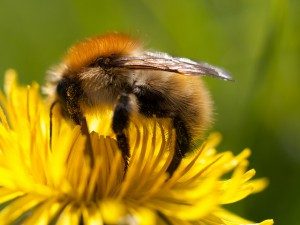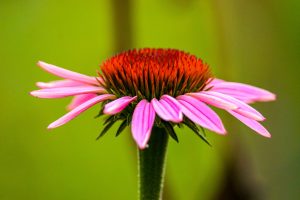
In 2013, I read a really good article from Waking Times about honey bees. What’s amazing is that today, almost 10 years later, we haven’t done much more to help the bees, which are now an endangered species because of our on-going human lifestyles.
Why do honey bees matter?
Well, we ALL depend on honey bees to pollinate our food. Bees are a critical key to our survival.
Just about all countries in the world, except for the USA, are making positive strides to help the bees survive extinction – they are monitoring farm and lawn chemicals, marketed by big corporations like Monsanto, and working on ways to increase the plants that bees pollinate.
Are we doing that in America? Do you spray chemicals on your lawn today?
There is NO TIME to waste debating the fate of our bees – we must take action NOW to stop mass die-offs.
Who’s Killing The Bees

The use of a class of insecticides known as neonicotinoids are the primary toxins responsible for the rapid die-off of honey bees. The systemic residues of these pesticides not only contaminate pollen, nectar, and the wider bio-system, but they have repeatedly been identified as highly toxic to honey bees themselves in scientific studies.
I still see these chemicals on the shelves in garden centers and big box stores.
With merely one out of three bites of pollen, bees, butterflies, and other beneficial species will die. We were warned that this decline was coming, but NOTHING is being done about it in the good ole USA.
Monsanto sells GMO seeds which requires the farmers to spray more of their Monsanto chemicals to kill weeds and insects. And the bees.
We have “waited and debated” this issue with Big Agra and government agencies for decades, but we’re running out of time.
Big Agra and the government agencies aren’t taking action, so do they know that if bees are endangered, WE ARE ENDANGERED?
Mounting scientific evidence demonstrates the impacts that these pesticides are having on these fragile species, along with unprecedented annual colony losses up to 40 to 90 percent.

4 Ways We Can Help The Bees
Cut Back (actually completely eliminate) Lawn Pesticides and Fertilizers
Many common lawn and garden chemicals are lethal to bees, while others may weaken their immune systems, allowing parasites, disease or other stresses to finish them off.
Instead, switch to a strategy of integrated pest management or opt for natural, organic fertilizers and biological controls. Even if they don’t work as well as the deadly chemicals, you can do your part and help the bees.
Plant Bee-Friendly Plants
Plants need bees for pollination as much as bees need plants for nectar and pollen.
Did you know that bees are more attracted to blue, purple and yellow flowers. Consult with a local nursery or call a non-Monsanto university ag extension to find the appropriate plants for your area that are healthy for the bees. Research shows that gardens with 10 or more bee-friendly plants support the most bee visitors.
Leave Some Weeds
Many common weeds, such as dandelions and clover, are very popular with bees. Go ahead and let some flower, then to keep things tidy, pull them up after they’ve gone to seed.
Avoid too much mulch. Many native bees tunnel and live in the soil, but can be blocked by heavy layers of wood chips or plastic liners. Learn to edge your lawn tastefully without completely shutting out bees.

Help Your Neighborhood Protect Bee Habitats
Some of the biggest threats to bees are urban development and chemical land management. But you can reduce this trend by volunteering to plant wildflowers and other native vegetation along roadways and other common areas.
Promote smarter development growth and implement sensible limits to stripping the environment where you live.
We have known about this danger for over a decade. Let’s stop wasting times (and losing bees), and help fix this disaster now.
Do your part by following the steps above.
_____________________________
If you want to learn more about health and disease prevention, contact me at janethull.com. Remember that you are never alone when you are looking for good health!
Gain access to all of my online programs, ongoing support, monthly Q&A, and more. I look forward to supporting you on your journey to alternative health and wellness.
_____________
Disclaimer: This article is for informational purposes only, and is educational in nature. The FDA may not have evaluated some of the statements. This article is not intended to diagnose, treat, cure, or prevent any disease. Please discuss with your own, qualified health care provider before adding supplements or making any changes to your dietary program.
Before taking vitamins, consult your doctor; pre-existing medical conditions or medications you are taking can affect how your body responds to multivitamins.
You have our permission to reprint this article if you attribute us with a live back-link to this article and the youtube links. https://janethull.com/